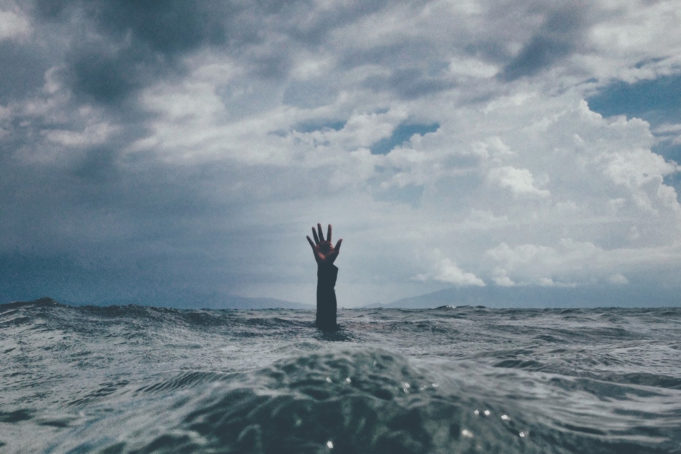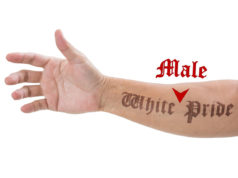It’s funny. You think you know a place. A community.
Maybe it’s the town you grew up in. Maybe it’s a city you’ve lived in for decades. Perhaps it’s a state or even a country.
Your primary and secondary schools gave you comic book versions of the place’s history and heroes, and then you were on your merry way. You did the normal things, pursued the typical ends, and enjoyed standard success. You assumed a life.
But somewhere along the way, you remembered something off-putting at a red light or recalled a disturbing image you saw on TV. A face in a crowd or a voice in the back of your head. It unsettled you. Something rattled the acquiescence you had eased into and the cozy assimilation you eventually wore like a letter jacket for adulthood.
Something undermined it and, with it, you.
Most people’s attention to this kind of existential glitch drifts when the TV channel changes or the red light turns green, and they may never revisit it again. Why should they? It was an exception, not the rule. They have their children’s college funds to save for and retirement. They shush the stray notions away or shove them out of the foreground.
Few of them have read Herman Hesse, but a short passage from Steppenwolf perfectly illustrates their stance on the matter. People won’t swim, Hesse suggests. “They are born for the solid earth, not for the water. And naturally they won’t think. They are made for life, not for thought. Yes, and he who thinks, what’s more, he who makes thought his business, he may go far in it, but he has bartered the solid earth for the water all the same, and one day he will drown.”
It’s a fair point. Who wants to drown?
Can you name a single person from wherever you grew up who was really interested in swimming? Didn’t almost all of them prefer the safety of solid ground?
Dylan Thomas was a fine swimmer, but he knew there was no future in his “craft or sullen art” and that he’d be treading water ’til the end. Anne Sexton approached the issue more practically.
“Live or die,” she wrote, “but don’t poison everything.”
Hesse and Thomas were the types of friends you let drift away. Sexton killed herself.
Yes.
To think is to undermine. And sinking is the danger of thinking, so we cling to false buoyancies like capitalism, religion, or technology. We know they’re nothing more than garbage patches spinning in the ocean, but a temporary respite from our anxieties is better than nothing.
So here we are. We find ourselves in a time and a place where the complacence that was once guaranteed by standard, obligatory distractions and gaieties is failing us. And we seem to have forgotten how to swim.
Existential urgency encroaches from every direction, including rising, poisoned seas, but only a teenage girl from Sweden has taken to the water.
Does this make us pathetic or simply apathetic?
Our leaders use one to reinforce the other. They certainly work real hard to keep us from abandoning solid ground.
Serious thought processes are what the times require, and I thought my home state and my country were full of serious people. We certainly need to be. We’re seven generations behind.
The average period constituting one generation to the next is 20 to 30 years, and seven generations back, the first Industrial Revolution was about to be supplanted by the second. Meanwhile, our efforts to extinguish or convert our indigenous neighbors — many of whom believed that every major decision in their tribe should be made keeping the well-being of the seventh generation forward in mind — were really picking up steam. It was happening to indigenous and aboriginal peoples all over the world, and the white refrain was always the same. The indigenous or aboriginal peoples were considered godless, primitive savages, uneducated, uncivilized, and, in many cases, subhuman.
Boy, do we have egg on our face now.
The Great White Lie that our ways were better than theirs is finally and indisputably being exposed. We don’t even think one generation ahead, much less seven — and our stewardship of the planet and the human population that inhabits it has been cataclysmic and may be unsalvageable.
The white guys were never the smartest folks in the room. Just the greediest and the ones who paid the least heed to living in harmony with their environment and the world around them. Their air. Their water sources. And their animal kin.
Ultimately — and probably until the end — we are the worst lice in creation, and every conscious, sentient creature that isn’t us knows it.
But we’re on solid ground.
And they’ll all drown.
Fort Worth native E.R. Bills is the award-winning author of Tell-Tale Texas: Investigations in Infamous History.
This column reflects the opinions and fact-gathering of the author and not the Fort Worth Weekly. To submit a column, please email Editor Anthony Mariani at Anthony@FWWeekly.com. He will gently edit it for clarity and concision.













Very dark writing but so much truth. We are seeing the sad results of the “greediest and the ones who paid the least heed to living in harmony with their environment”.
Deep waters. Speaking of water, I am compelled to take the author up on his challenge to “name a single person from wherever you grew up who was really interested in swimming?” Well, I for one, at around 5 years old, wanted nothing more than to join in the fun, jump in the water, and learn to swim. I took the obligatory swimming lessons, quickly learning “the crawl” and how to dog paddle. Then the swimming test: swim from one side of the pool to the other. Done. I was in the local pool and never wanted to leave. My son was the same, but wanting to swim at three years old. Neither one of us is a particularly great swimmer, but it’s the joy of being in the water that matters. I’m certain millions have had the same natural desire to swim. Am I missing the point of the article? No. I just take issue with the author painting with such broad strokes, so to speak, and stating something as if it were some universal truth. The statement was a splinter in my brain as I read the article, questioning everything the author said, lessening the power of the ensuing words.